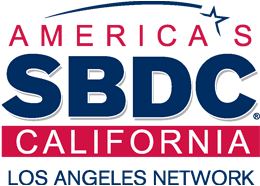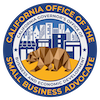- Begin by playing around. Get a feel for what each site has to offer. LinkedIn is business-focused, so it’s a good tool for B-to-B companies. Facebook, more “fun” oriented, works best for products that have the capacity to develop fanatical fans. And Twitter can help any type of business build a reputation, attract customers and make connections.
- Raise your profile on LinkedIn. LinkedIn Answers lets users ask questions that anyone on the site can answer. Respond to questions relevant to your industry, and gain a reputation as an expert. (Make sure your answers are useful, and not a hard sell of your own services, or you’ll gain a bad reputation.)
- Join a LinkedIn Group, or start your own. Participating in a Group related to your industry is a great way to become known as an expert, make new connections and get to know people who can help grow your business.
- Create a Facebook Fan Page. A business’s Facebook page is different than an individual’s. Create a Fan Page where Facebook members can become “Fans” of your company. (Check out my page here.) Keep it fresh by posting regular updates about your business, including photos, videos and links.
- Think Twitter quality, not quantity. Twitter users post messages (“Tweets”) up to 140 characters. When you “follow” someone, you receive their Tweets. Forwarding other people’s Tweets is called “reTweeting.” Get started with Twitter by importing your e-mail contacts and following them. From those people, you’ll find new people to follow and weed out those you’re not interested in. Aim for a narrow niche rather than volume. It’s better to have 200 followers who passionately care about your business than 200,000 who don’t.
- Use tools to manage Twitter. The sheer volume of Tweets can be overwhelming. At http://twitter.com/downloads, you’ll find lots of free applications you can use to organize them. (I use TweetDeck.)
- Benefit from blogs. Blogs are also social media tools—and perhaps the most influential. You can start a blog on your Web site (WordPress software is a simple way to start). If that’s too time-consuming, get mentioned on someone else’s blog instead. Read top blogs in your industry, and comment on their posts when relevant. Bloggers are hungry for topics, so update them on newsworthy events at your company.
- Put in time. Social media tools are free, but they do require an investment of time. Plan to devote one to two hours a day to social media. If you don’t have time, appoint someone on your staff to do it—a twenty something would love this job.
- Find your favorite. As time goes by, you’ll get a feel for which social media tool is most effective. But don’t rely on your gut; regularly measure how many Facebook fans you have, how many blog mentions you’ve gotten, how many customers your Tweets bring into your store, and how many clients you’ve landed from LinkedIn. Focus on the tools with the biggest payoff.
- Publicize it. Your Web site, business cards and other marketing materials should tell people how to follow you on Twitter, fan you on Facebook or find your blog. Include these links in your e-mail signature as well.
Rieva Lesonsky is CEO of GrowBiz Media (www.growbizmedia.com), a content and consulting company that helps entrepreneurs start and grow their businesses. Follow her on Twitter @Rieva.



